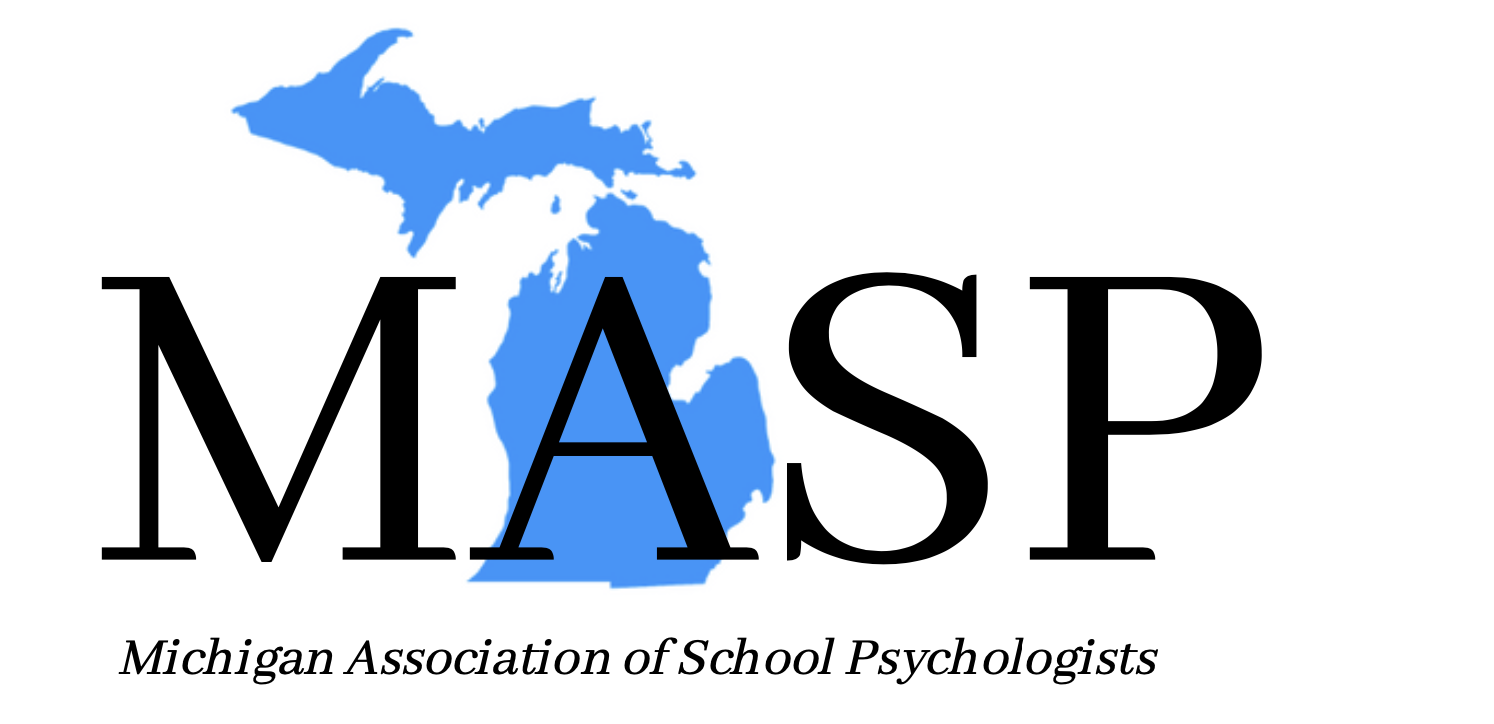Michigan Association of School Psychologists (MASP)
Proposed Costs of School Psychology Program Expansion
School psychology training opportunities are very limited in Michigan. With only five training programs, there are approximately 30-40 new school psychologists entering the workforce each year. In contrast, Ohio, which has a similar population to Michigan, has ten school psychology programs and a lower school psychologist to student ratio (1:840 in Ohio compared to 1:1445 in Michigan). The ratio of school psychologists to students in Michigan is nearly three times the recommended ratio of 1:500 (one school psychologist for every 500 students) put forth by the National Association of School Psychologists. This has led to limited mental health services and support for students in Michigan. Further, there are insufficient opportunities for individuals living in more rural areas to access training. While the state has created opportunities for schools to develop certified teachers and staff through the Future Proud Michigan Educator Staff Grant, school psychologists were explicitly excluded from this program.
In order to address the critical shortage of school psychologists, we must create more training opportunities in Michigan. Further, we must develop opportunities that are available to a wider geographical region, specifically rural areas. To accomplish this, we recommend that the state develop a grant program to assist universities in developing new training programs, expanding current programs, and/or developing distance learning models. A grant program has the potential to double the number of new school psychologists entering the workforce each year, and to provide training opportunities for adult learners who wish to stay in their communities.
Recommendation: Develop a grant program for higher education institutions in Michigan to increase the number of students trained in the field of school psychology. Grant funds will be used to hire faculty members to initiate/expand enrollment and/or to develop distance education models. Universities must develop a plan for internally funding the program after the grant period ends to ensure we develop a sustainable stream of new school psychology graduates in MI. This funding can be provided for 1, 2, or 3 years. Universities will vary in how many years of start-up support they need to gain institutional support and to sustain the costs of the positions in their own budgets.
|
School Psychology Training Capacity Requirements: To maintain accreditation (which is required for certification in MI), programs must maintain a 1:12 faculty to student ratio |
|
|
Annual Costs: New program development |
Annual Costs: Expand current program |
|
New Personnel Costs: Need: A minimum of 3 faculty positions: Salary and benefits: $100,000-110,000/year per faculty position: Total: $300,000 - $330,000/year |
New Personnel Costs: Need: A minimum of one additional school psychology faculty position or part-time faculty to teach new courses. Salary and benefits: $90,000 - $110,000/year Total: $90,000 - $110,000 |
|
Technology and Material Costs: Need: Software, technology services, and test kits for training Total: $20,000 - $30,000 |
Technology and Material Costs: Need: Software, technology services, and test kits for training. Total: $10,000 - $20,000 |
|
Program Development and Coordination: Need: Faculty time for program/curriculum development, student recruitment, accreditation costs, graduate/teaching assistants, and/or staff time. Total: $20,000 - $30,000 |
Program Development and Coordination: Need: Faculty time for program/curriculum development, student recruitment, accreditation costs, graduate/teaching assistants, and/or staff time. Total: $20,000 - $30,000 |
|
Total: 340,000 - 390,000/year These costs can be provided for 1, 2, or 3 years. Universities will vary in how many years of start-up support they need to gain institutional support and to sustain the costs of the positions in their own budgets. |
Total: $120,000 - $150,000/year |
A grant program has the capability to double the number of new school psychologists entering the workforce each year.

